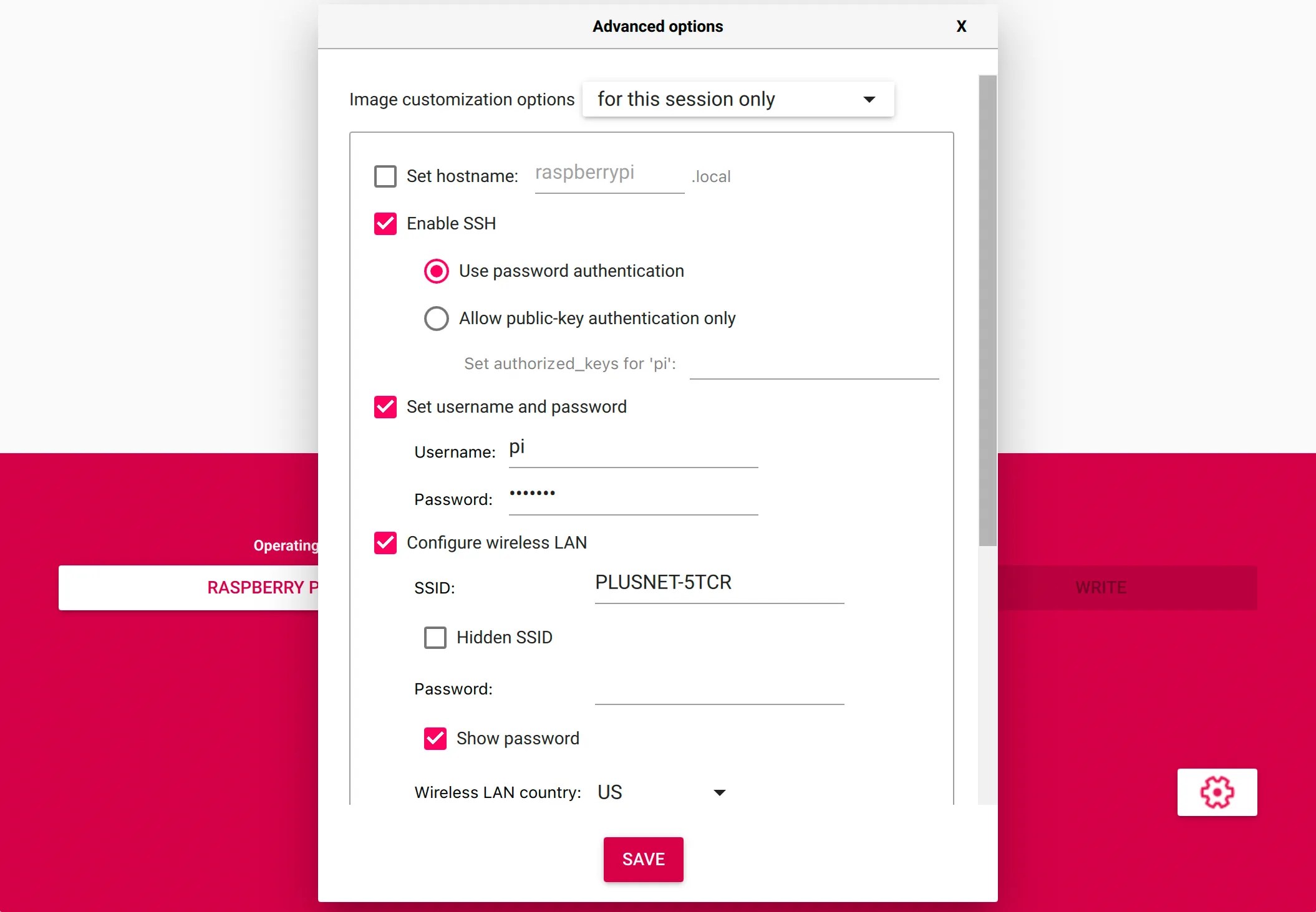As businesses and hobbyists increasingly rely on IoT devices like the Raspberry Pi for remote operations, the need for robust security measures becomes paramount. Secure Shell (SSH) keys provide an encrypted pathway to access and control these devices, ensuring that sensitive data remains protected. Whether you're managing a single Raspberry Pi or an entire network of IoT devices, understanding how to use SSH keys effectively can save time, enhance security, and streamline operations.
With the growing adoption of remote IoT platforms, the Raspberry Pi has emerged as a popular choice for developers and tech enthusiasts alike. Its affordability, versatility, and ease of use make it an ideal candidate for IoT projects. However, managing remote access securely can be a challenge without the right tools and knowledge. SSH keys offer a reliable solution, eliminating the need for password-based authentication and reducing the risk of unauthorized access. This guide will walk you through the process of setting up and using SSH keys with a Raspberry Pi, ensuring your remote IoT platform remains secure and efficient.
From configuring SSH keys to troubleshooting common issues, this article covers everything you need to know about remote IoT platform SSH key Raspberry Pi. By the end of this guide, you'll have a clear understanding of how to implement SSH keys effectively, safeguard your IoT devices, and optimize your workflow. Whether you're a beginner or an experienced developer, this resource will equip you with the tools and knowledge to take full advantage of secure remote access.
Read also:How To Remotely Access Raspberry Pi With Remoteiot Download Free
- What is Remote IoT Platform SSH Key Raspberry Pi?
- How Does SSH Key Authentication Work?
- Why is SSH Key Important for Remote IoT Platforms?
- How to Generate SSH Keys for Raspberry Pi?
- Setting Up SSH Keys on a Remote IoT Platform
- Common Issues with SSH Keys on Raspberry Pi
- Can SSH Keys Be Used for Multiple Devices?
- Best Practices for Securing Your Remote IoT Platform
- How to Troubleshoot SSH Connection Problems?
- Future of Remote IoT Platforms and SSH Keys
What is Remote IoT Platform SSH Key Raspberry Pi?
Remote IoT platform SSH key Raspberry Pi refers to the process of using Secure Shell (SSH) keys to establish a secure connection between a remote IoT platform and a Raspberry Pi device. SSH keys are cryptographic keys that allow users to authenticate and access devices without relying on passwords. This method is particularly useful for IoT platforms, where multiple devices need to be managed remotely while maintaining a high level of security.
SSH keys consist of a public key and a private key. The public key is stored on the Raspberry Pi or the remote IoT platform, while the private key remains with the user. When a connection is initiated, the system verifies the private key against the public key, granting access only if the keys match. This eliminates the risk of brute-force attacks and unauthorized access, making it a preferred method for securing IoT devices.
How Does SSH Key Authentication Work?
SSH key authentication is a secure method of verifying identity when accessing a remote device. It uses asymmetric encryption, where a pair of keys (public and private) are generated. The public key is placed on the server or device you want to access, while the private key is kept securely on your local machine. When you attempt to connect, the server challenges your client to prove that it possesses the corresponding private key.
This process ensures that only authorized users with the correct private key can access the device. Unlike passwords, SSH keys are nearly impossible to guess or crack, making them a reliable choice for securing remote IoT platforms. Additionally, SSH keys can be configured with passphrases for an extra layer of security, further protecting your Raspberry Pi and other IoT devices.
Why is SSH Key Important for Remote IoT Platforms?
SSH keys play a critical role in securing remote IoT platforms. As IoT devices like the Raspberry Pi are often deployed in unsecured environments, they are vulnerable to cyberattacks. Password-based authentication can be easily compromised, but SSH keys provide a much stronger defense against unauthorized access.
Using SSH keys for remote IoT platform Raspberry Pi ensures that only trusted users can access the devices. This is especially important for businesses managing large-scale IoT deployments, where a single breach could lead to significant data loss or operational disruption. By implementing SSH keys, you can enhance the security of your IoT ecosystem while simplifying the authentication process.
Read also:Elon Musks Wife A Deep Dive Into His Personal Life And Relationships
How to Generate SSH Keys for Raspberry Pi?
Generating SSH keys for your Raspberry Pi is a straightforward process that can be completed in a few simple steps. First, open a terminal on your local machine and run the following command: ssh-keygen -t rsa -b 4096. This command generates a 4096-bit RSA key pair, which is highly secure and suitable for most use cases.
During the process, you'll be prompted to specify a file location for the keys and optionally set a passphrase. Once the keys are generated, you can copy the public key to your Raspberry Pi using the ssh-copy-id command. This ensures that your Raspberry Pi recognizes your private key, allowing you to establish a secure connection without entering a password.
Setting Up SSH Keys on a Remote IoT Platform
Setting up SSH keys on a remote IoT platform involves configuring the platform to recognize your public key. This process varies depending on the platform you're using, but the general steps remain the same. First, ensure that your public key is added to the ~/.ssh/authorized_keys file on the platform. This file contains a list of all authorized public keys.
Next, disable password-based authentication to ensure that only users with the correct private key can access the platform. This can be done by editing the SSH configuration file (/etc/ssh/sshd_config) and setting PasswordAuthentication to no. After making these changes, restart the SSH service to apply the new settings.
Common Issues with SSH Keys on Raspberry Pi
While SSH keys are a reliable method of authentication, users may encounter issues when setting them up. One common problem is incorrect file permissions, which can prevent the Raspberry Pi from recognizing the public key. Ensure that the ~/.ssh directory and the authorized_keys file have the correct permissions by running chmod 700 ~/.ssh and chmod 600 ~/.ssh/authorized_keys.
Another issue is misconfigured SSH settings, such as enabling password authentication when it should be disabled. Double-check the SSH configuration file to ensure that all settings are correct. If you're still unable to connect, consult the Raspberry Pi logs for more information on the error.
Can SSH Keys Be Used for Multiple Devices?
Yes, SSH keys can be used for multiple devices, including multiple Raspberry Pi units within a remote IoT platform. This is particularly useful for managing large-scale IoT deployments, where maintaining individual passwords for each device would be impractical. By using the same public key across multiple devices, you can streamline the authentication process while maintaining a high level of security.
However, it's important to manage your private key carefully. If the private key is compromised, all devices using the corresponding public key could be at risk. To mitigate this, consider using separate key pairs for different groups of devices or implementing additional security measures, such as multi-factor authentication.
Best Practices for Securing Your Remote IoT Platform
Securing your remote IoT platform Raspberry Pi involves more than just setting up SSH keys. Here are some best practices to enhance the security of your IoT ecosystem:
- Regularly update your Raspberry Pi and IoT devices to patch known vulnerabilities.
- Use strong, unique passphrases for your SSH keys.
- Limit SSH access to specific IP addresses using firewall rules.
- Monitor logs for suspicious activity and take immediate action if necessary.
How to Troubleshoot SSH Connection Problems?
If you're experiencing SSH connection issues with your Raspberry Pi, start by checking the basics. Ensure that the SSH service is running on the Raspberry Pi by running sudo systemctl status ssh. If the service is not active, start it using sudo systemctl start ssh.
Next, verify that your public key is correctly added to the authorized_keys file and that the file permissions are set correctly. If the issue persists, try connecting with verbose output enabled by using the -v flag with the SSH command. This will provide detailed information about the connection process, helping you identify the root cause of the problem.
Future of Remote IoT Platforms and SSH Keys
As remote IoT platforms continue to evolve, the role of SSH keys in securing these systems will only grow in importance. With the increasing adoption of IoT devices in industries like healthcare, agriculture, and smart cities, ensuring secure remote access is critical. SSH keys provide a reliable and scalable solution, enabling users to manage large numbers of devices efficiently.
In the future, advancements in encryption technologies and authentication methods may further enhance the security of remote IoT platforms. However, SSH keys will likely remain a cornerstone of secure device management, offering a balance of simplicity and robustness that is hard to match.

